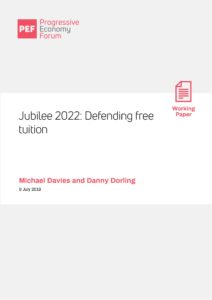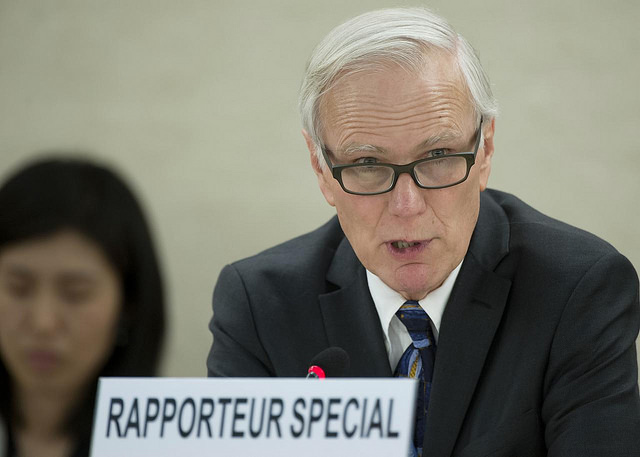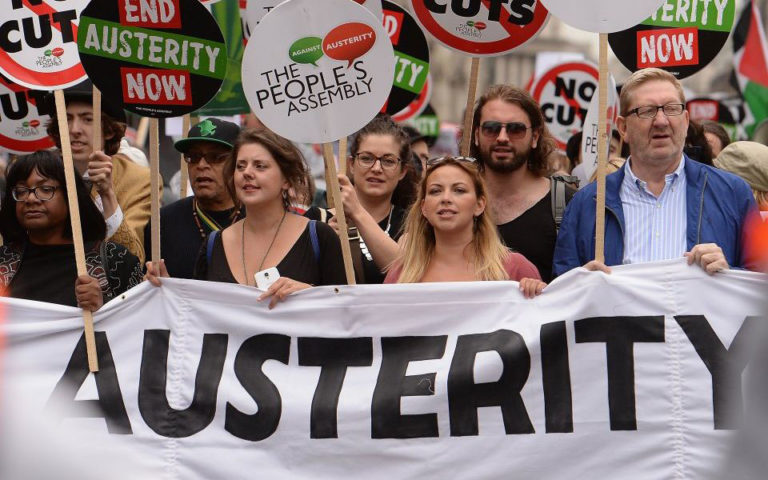

Michael Davies
Programe Lead at the Economic Change Unit
Michael Davies is Programme Lead at the Economic Change Unit, a non-profit organisation that seeks to amplify efforts to realise a more sustainable, just and resilient economy.
Prior to this, Michael worked as PEF's Economist and Secretary, co-authoring PEF's two publications on writing off student debt, contributing to PEF's first report and working on the launch of the website.
He was previously a researcher in Lord Robert Skidelsky’s parliamentary office, where he edited and provided research for Lord Skidelsky’s book on the history of economic thought and post-crash macroeconomic policy, and supported him across all areas of his output. Michael is originally from Blackburn, Lancashire and holds a first-class BA in Philosophy, Politics and Economics from the University of Oxford. He tweets @mchldvs.


10 Years Since The Crash: Causes, Consequences and the Way Forward

Jubilee 2022: Writing off the student debt

BBC analysis of labour market statistics misses the point
Avoiding real wage falls for a grand total of nine months – outside of recession time, no less – is not cause for celebration.

The UN is worried by UK austerity – so how do we end it?
The UN has just issued a damning report on the UK’s policy failures over the past eight years, cataloguing and condemning the “unnecessary misery” inflicted by the policy.

Budget 2018: Progressive Perspectives
Since the introduction of austerity, the focus of each Budget has been on reducing the deficit and debt – to the detriment of the wider economy. In this podcast series, members of the PEF Council explore what a progressive approach to the Budget could look like.

The size of the Chancellor’s envelope: why does it matter?
Much of the Chancellor’s upcoming Budget (October 29) risks being made irrelevant by the culmination of Brexit negotiations in the following month. But we should be aware of one announcement that is likely to have a lasting impact on the shape of government spending – the size of the ‘spending envelope’

Underemployment, underinvestment and power: why wage growth has slowed
Despite record rates of unemployment, wage growth has slowed and underemployment remains high – workers are ultimately bearing the cost of labour market power imbalances and underinvestment.

New research on austerity and Brexit, old neoliberal tricks
Engagement with the deeper reasons for Brexit is a necessary demonstration of respect for the electorate, absent from much of the pro-Brexit lobby. The attempt to undermine these efforts on grounds of being ‘patronising’ is a classic neoliberal tactic, with origins in (neoclassical) economics.

ONS Wealth and Assets Survey: Young people, North East fare badly
PEF economist Michael Davies warns against false optimism off the back of the latest ONS Wealth and Assets Survey results, and highlights the particular challenges faced by young people and the North East.

Response to Theresa May’s NHS speech
This afternoon, Prime Minister Theresa May announced increases to NHS funding in her speech at the Royal Free Hospital in London. While the proposed spending increases are to be welcomed, they remain inadequate in the face of the challenges our health service faces.

Bad economics is holding Britain back
Hammond’s deficit-reduction framework is an edifice with no grounding in economics. By ruling out borrowing for capital spending, the government will be forced to either underinvest in the UK’s future or wreak further havoc on frontline public services.

Not all debt is bad
The IMF’s Fiscal Monitor report perpetuates fictions about the dangers of government debt, while ignoring the impending private debt crisis and its link to austerity.

